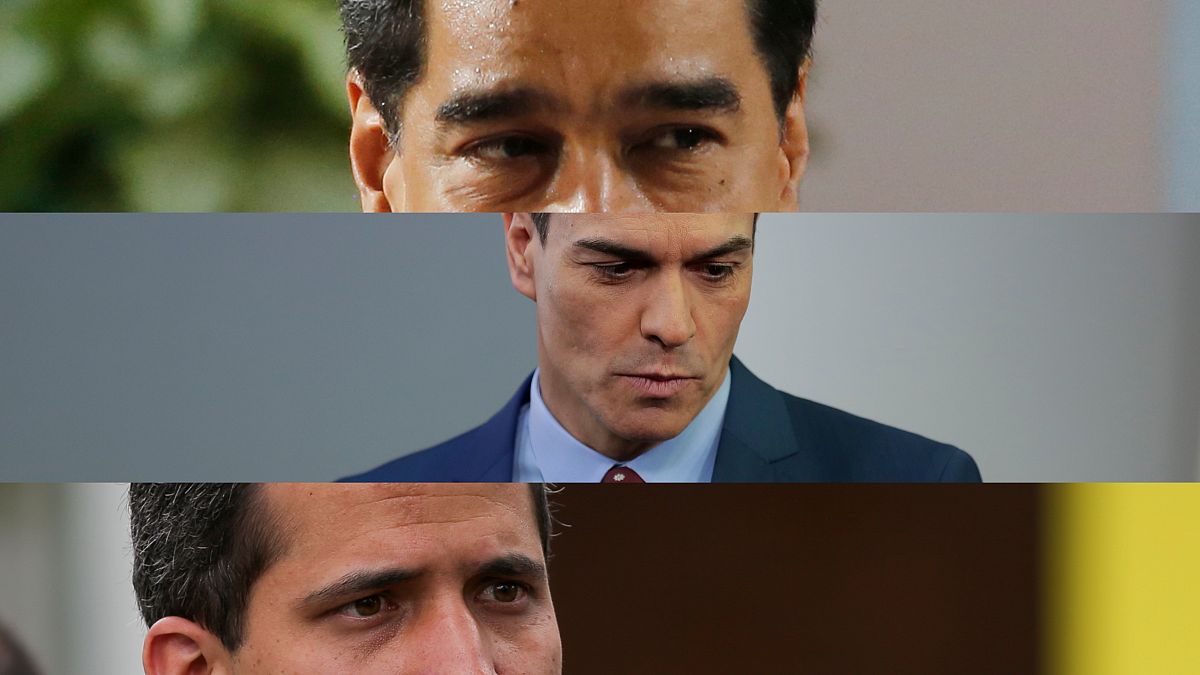With Unidas Podemos in the ruling coalition, Spain's position towards Venezuela has become slightly less clear-cut.
As violent protests rocked Venezuela last year, Spain's Prime Minister Pedro Sanchez was one of the first to recognise Juan Guaido as the interim president of the embattled Latin American country.
But fast forward 12 months, and Spain's position appears to have become a little less clear-cut.
The reason? The new ruling coalition sees Sanchez's centre-left Socialist Party (PSOE) share power with the more left-wing Unidas Podemos alliance.
'We have the best relations with Spain'
Guaido, who is currently touring Europe to gather support for his bid to call fair and transparent elections in his native country, has not yet received a formal invitation from the Palace of Moncloa, the official residence of the Spanish Prime Minister.
This is in sharp contrast to the UK, where Guaido, who is also the head of the National Assembly, met with Prime Minister Boris Johnson on Tuesday.
His tour also saw him visit the European Parliament and Commission — where he met with the bloc's top diplomat Josep Borrell — and address global leaders at the World Economic Forum in Davos, Switzerland.
Instead, he is likely to be received by the Spanish Foreign Minister, Arancha González Laya.
Still, he told reporters in Brussels on Wednesday: "We have the best relations with Spain."
"We hope to be able to arrange an agenda in each of the countries that we visit (...) [to] recover democracy in Venezuela and thus collaborate in the region," he added.
The Pablo Iglesias factor
Sanchez's distance is not considered surprising in light of recent political developments in Spain but nor does it signal an abrupt change in his foreign policy agenda.
For Professor Rogelio Núñez, from the Institute for Research in Latin American Studies, it should instead be attributed to one fo the country's new deputy prime minister, Pablo Iglesias
A theory shared by Anna Ayuzo, senior researcher of Latin America at the Barcelona Center for International Affairs who told Euronews that "it is not that Sanchez has changed his position of recognition of Guaidó (...) but rather that there are now problems in the executive itself because of the partnership with Unidas Podemos".
Spain held its fourth election in as many years in November and although Sanchez's PSOE came in first, they did not have a majority to rule alone and entered into a coalition with Unidas Podemos, an alliance of left-wing and far-left political formations led by Pablo Iglesias.
"(Unidas Podemos) do not recognise Guaido. On the contrary, they see him as a coupist. It is a problem of cohesion within the government's partners," Ayuzo added.
So although "the head of the government has remained the same", the country is now also warming up to the idea of mediating talks between President Nicolas Madura and Juan Guaido's opposition, seen as a concession to Iglesias.
Núñez emphasised that the real test for Spain's official position will come later this year as Venezuela is scheduled to hold parliamentary elections.
Sanchez and Iglesias will have to endorse a shared position — whether it be recognition or condemnation — with the ballot already facing calls of a boycott due to pass alleged electoral fraud.
